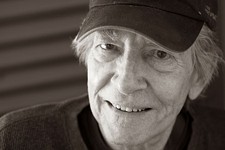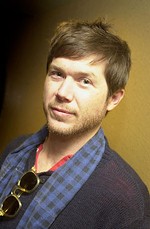The Great American Drug Book
Robert Sabbag chronicles the drug trade
By Clay Smith, Fri., Jan. 18, 2002

Robert Sabbag was like a lot of people. He was going to write the Great American Novel. But it was the early Seventies and it was clearly time for him to "kind of bum around the world" like everyone else his age instead of remaining a newspaper reporter. When he returned, one of his friends, who happened to be a literary agent, suggested that he join her at the Algonguin Hotel to meet a man who thought his life as a drug dealer would make a good "as told to" book. Listening in was an editor from the Bobbs-Merrill Company, a house known for publishing The Joy of Cooking and the Raggedy Ann books. Before Sabbag agreed to write the story of Zachary Swan, as he would become known in Sabbag's now-classic Snowblind: A Brief Career in the Cocaine Trade, he performed a catechism on him to see if he was irreparably morally bankrupt. Had he ever shot anyone? Had he ever dealt heroin? But no, he was merely a con artist whose story would entertain readers. "Here I am presumably a serious author," Sabbag recently told the Chronicle from his William Morris agent's office in Los Angeles, "and what am I doing? I'm writing this goddamned cocaine book that's going to be like, 'as told to.' It's just going to be this stupid crime book. So what I did was I took what I considered to be a really inconsequential subject and wrote it in a completely and utterly formal fashion."
No one had ever seen anything like Snowblind. Vigorously reported, highly literate, and wildly, wickedly entertaining, Snowblind managed to predict, in 1976, the burgeoning cocaine explosion in America. After it was published, a man in the record business named Allen Long contacted Sabbag to say that he, too, had an intriguing story about drugs even though he was now clean. After checking out his story, Sabbag realized that Long was still smuggling marijuana and highly invested in hiding the facts and besides, Sabbag didn't want to be typecast as a drug writer. Since the mid-Seventies, he's written articles for national magazines and also penned Too Tough to Die, a book about the U.S. marshals.
Sabbag had stayed in touch with Long periodically throughout the Eighties, when Long was a fugitive. Several years after Long was released from federal custody in 1995, the two of them talked again about Sabbag writing a book about Long's experiences. Loaded: A Misadventure on the Marijuana Trail (Little, Brown, $24.95) opens with the moment everything really began to fall apart for the enthusiastic smuggler who started out wanting to make a documentary about drug smugglers. It's 1976, and Long, after being airborne for 15 hours in a rickety old DC-3 with his fellow "counterculture capitalists," is told he can't land at a clandestine airstrip in Colombia because the rain has turned the "runway" into thick mud.
From there, Sabbag doesn't relax the reins. Loaded has more one-liners than a convention of comedians. Before Long helped open up Columbia to American smugglers, he smuggled Mexican marijuana: "It was a clear, balmy, late-summer night on the Plazuela de los Mariachis, and for a moment Long was overcome with what he would remember as a heavenly glow. Shortly thereafter he woke up lying face-down on the floor of the men's room in two or three inches of wet sawdust." Sympathetic when he needs to be but no easy friend to the people he writes about, Sabbag loves to make his words zing in that classic, mordant, hard-boiled way: "Tony was a man who owned plenty of guns, but never to Long's knowledge was Tony seen cruising the streets of Miami with one of them stuck in his belt. In Miami that made Tony a gentleman." Loaded is so tightly wound and hard-hitting, it's kind of a surprise the book doesn't bounce. It's hard to imagine that doing the drugs Sabbag writes about is as fun as reading him. He'll be at BookPeople on Tuesday, January 22, at 7pm.
Austin Chronicle: How did you end up writing about drugs?
Robert Sabbag: Snowblind, this is its silver jubilee, actually, and when I wrote that book I really didn't know anything about drugs at all. It was a job for hire. What happens now, as a result of the success of that book, is they come to me, these guys, and Allen Long is one of those characters. He read Snowblind and called me and wanted me to do his story and it was pretty much precisely for that reason that I didn't do it. My next book was about the U.S. marshals, and I've done a lot of magazine journalism, very little of it, actually, about drugs, but this one kind of came along. What happened was, Allen Long called me after he got out of prison. He and I had sort of fallen out of touch -- he'd fallen out of touch with everybody because he was running from the law under a phony ID -- and every six months or so I'd get a call from him and I just happened to be looking around for something new, and it dawned on me that now might be a real good time to do this book.
There's a certain nostalgia associated with it. This is kind of ancient history, this is once-upon-a-time. I think most people would identify it as a culture that has vanished in a way. There's probably more than one generation of people who have no idea what it was like to be alive in the Sixties and Seventies and what it was like to have everybody on the street that you'd run into, half of them be stoned all the time. One of the more difficult things was trying to reconstruct what life was like back then.

AC: Well, what is this book really about?
RS: What makes it interesting to follow through the eyes of Allen Long is that his experience in and of itself, his kind of cavalier entry into this business, really parallels the metastasis of the drug business not only in the United States but in Columbia as well. This thing grew and grew and became bigger than it started out to be. It became much more than an adventure, it became much more dangerous and darker and it had geopolitical implications that nobody could imagine, certainly not Allen Long when he was getting high and saying, "Let's go down to Colombia and get some pot." It would be difficult for me to find an interesting way to write about the drug business today. There doesn't seem to be a lot about it that's very fun or very interesting. It's dark and criminal and painful and there's nothing whimsical about it. Whereas even cocaine had its days of a kind of whimsical quality.
AC: Both Snowblind and Loaded open with these inauspicious moments for the main characters. What is it about that technique that you like?
RS: I ask myself the same question. I don't know that I can give you a reason for doing it, but it's one technique that I can actually identify and I learned in studying Vergil, I think, in high school: in medias res, "in the middle of things." When I wrote Snowblind, I had never written a book before or anything close to it. I said, "Well, now I'm going to write a book and where should I start?" Nobody ever taught me how to write anything other than an obituary or a news story. I said, "Well, I'll start in the middle of things."
AC: People say that detail is what makes for a good story, but Loaded is so full of detail ...
RS: There are some people who say that detail kills a story. I get the sense that the detail might have enriched it for you.
AC: It did.
RS: To me, that's the idea! The idea is to entertain the reader! I think the story drives forward deliberately enough to hold the reader's attention and I really do believe that readers are interested in that kind of detail. I think because this story is very much about reconstructing a time and place, that it's not irrelevant detail. I like to take risks and take chances and I'm not any better at it than anybody else. But I made the decision, and I do take some heat for it -- the early reviews of this book, Publisher's Weekly and Kirkus, what they don't like about the book is that there's too much writing in it. That's what they don't like! And I guess I'm just never going to please those kinds of readers. If you don't like that kind of stuff, you've got the wrong author. If you're going to write about something to some people as repellent as the drug trade, make it interesting on another level and I think that being able to laugh at the way these people behave -- they take themselves so seriously most of the time -- that I find it fun not to take them too seriously and to let the reader laugh along with me at their behavior.
AC: Do you have a sense of who your readership is?
RS: The audience I'm writing for might not be the audience people think I'm writing for. You might think, when you look at the things I write about, that I'm aiming at some very hip audience. And the fact is, I'm aiming at a very sophisticated reader, someone who likes to read. One of the things that surprised me about Snowblind, is that that book, which was written when I was 27 years old, presumably for an audience of my peers, was very, very well received by people in their 60s and people who loved to read. They really liked the language. I show off! I kind of play with the language in a way that other people don't. Maybe I'm a little bit outdated in that I continue to do that today. I like to entertain people, obviously, and it doesn't have to be a comedy to be entertaining. What I like to do is take people places they've never been before. ![]()








